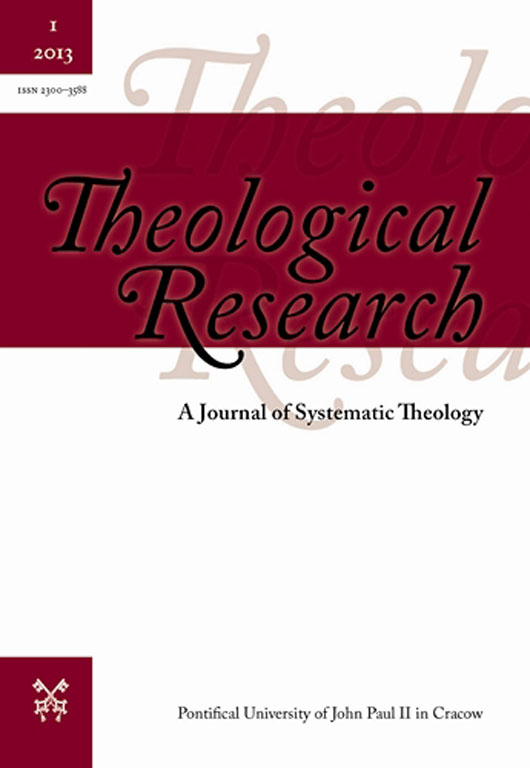The Theological Principles Underlying Augustine’s “City of God”
The Theological Principles Underlying Augustine’s “City of God”
Author(s): Dariusz KasprzakSubject(s): Christian Theology and Religion, Theology and Religion, Systematic Theology
Published by: Wydawnictwo Naukowe Uniwersytetu Papieskiego Jana Pawła II w Krakowie
Keywords: City of God; the two loves; civitas Dei; civitas terrena; the apologetic motives; the seven ages of the world history
Summary/Abstract: In his treatise the City of God Augustine intended to show that the pagans anti-Christian charges blaming the Christians for the fall of Rome were unsubstantiated and that it was in Christianity that they could find the solution to many of their own moral and religious problems. The Bishop of Hippo wanted also to equip Christians with the appropriate arguments to refute pagan charges and to make them rejoice in the plan for the Salvation of humankind. In his assessment of the true value of philosophical principles it was essential for Augustine not to renounce the authority of Christ. Augustine claims that the human race is divided into two antagonistic communities, cities, in their pursuit of their respective ‘happiness’ (civitas Dei; civitas terrena). The two loves are mutually antithetical; the love of God, which is a social love and a love of justice, which is the very opposite of self-love, is an espousal of injustice.
Journal: Theological Research
- Issue Year: 1/2013
- Issue No: 1
- Page Range: 95-107
- Page Count: 13
- Language: English

